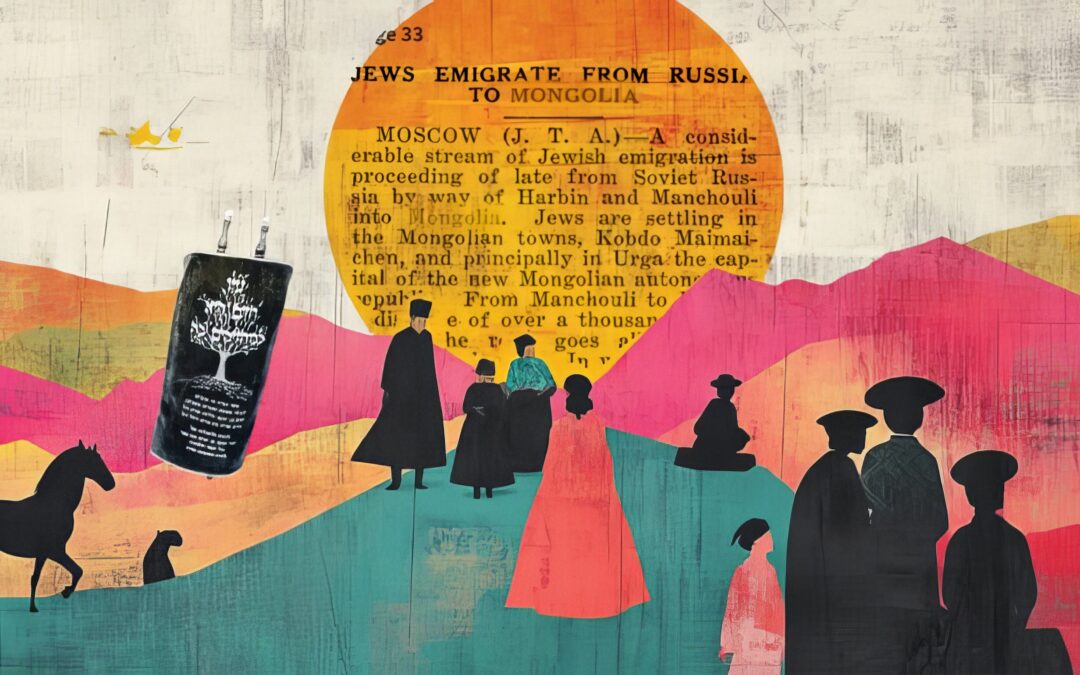New Evidence of a Tragic Past
Mongolia, renowned for its endless steppes and rich nomadic heritage, holds within its vast landscapes a largely forgotten chapter of Jewish history. A vibrant Jewish community once flourished here, tragically wiped out in a brutal genocide in 1921. Recent local efforts have begun to illuminate this obscured and tragic past.
A Remarkable Historical Connection
Mongolia’s connection to the Jewish diaspora might seem surprising to many. Over a century ago, world leaders such as King Leopold II of Belgium, Empress Maria Feodorovna of Russia, and General Li Hongzhang of the Qing Dynasty invested significantly in Mongolia’s gold mining industry, establishing the Mongol’Or company in Selenge Province. Among those involved was Baron Alexander Zanzer, who notably adapted his family name in honor of Zanabazar, the first Bogd Gegen and a revered figure in Mongolian history. Zanzer served as an intermediary between the Qing Dynasty and Mongolia’s spiritual leader, the Bogd Khan—also known as the 8th Jebtsundamba Khutuktu, the third most influential figure in Tibetan Buddhism, just below the Dalai Lama and Panchen Lama. For his significant contributions, Baron Zanzer received the highest aristocratic title granted to foreigners by Mongolia at the time.
Ironically, Baron Zanzer could not have foreseen that another baron, Roman von Ungern-Sternberg, would perpetrate horrific acts against the Jewish community he once belonged to.


The Fall of a Community
In June 1921, the flourishing Jewish presence in Mongolia was brutally eradicated by forces under the command of Captain Feodoroff, following orders from Baron Roman von Ungern-Sternberg. This notoriously antisemitic warlord, infamous for his violence during the Russian Civil War, commanded the murder of “all Jews, Bolsheviks, and Chinese soldiers”. Over the subsequent decades, almost all traces of Mongolia’s Jewish community vanished until recent discoveries uncovered the graves of these forgotten victims.
A Guardian of Memory
Today, Israeli businessman Yair Jacob Porat serves as a guardian of Mongolia’s lost Jewish heritage. Living in Ulaanbaatar since 1996, Porat has worked tirelessly to commemorate the forgotten community. He regularly organizes Shabbat dinners, imports kosher foods, and facilitates holiday celebrations for local Jewish residents and visiting tourists. Porat’s home doubles as a makeshift synagogue, recently welcoming a Torah scroll—the first such scroll seen in Mongolia in living memory.
Rediscovering Forgotten Graves
Motivated by a profound sense of responsibility and historical justice, Porat initiated a dedicated search for the graves of those killed in the 1921 genocide. Collaborating with local archives, monks, and a Russian journalist, Porat located an abandoned cemetery area in Ulaanbaatar. Here, graves marked with Stars of David and other symbols tragically confirm the genocide, including a mass grave designated “15 M,” marking the final resting place of fifteen victims buried together.
Honoring Memory and Building the Future
Porat now plans to fence and restore this cemetery’s Jewish section, safeguarding the memory of the lost community. Additionally, he remains deeply committed to fostering contemporary Jewish life in Mongolia. Through partnerships with Chabad emissaries and social media initiatives, he seeks to raise international awareness and ultimately establish a permanent Jewish center in Mongolia.
A Call for Remembrance
The poignant history of Mongolia’s Jewish community represents both a tragedy and a powerful symbol of resilience and revival. Thanks to Yair Jacob Porat’s dedication, the victims are honored, and Jewish traditions continue to thrive even in this remote corner of the globe. The story is now memorialized by institutions such as the Museum of the Jewish People (ANU) in Israel and acknowledged in articles by Chabad USA, as well as in historical texts recounting the extraordinary journey of Baron Alexander Zanzer, who survived the genocide only to later perish during the Holocaust after settling in Poland. His grandson keeps the memory alive.

Receive Breaking News
Sign up for our newsletter and stay up to date! Be the first to receive the latest news in your mailbox:

